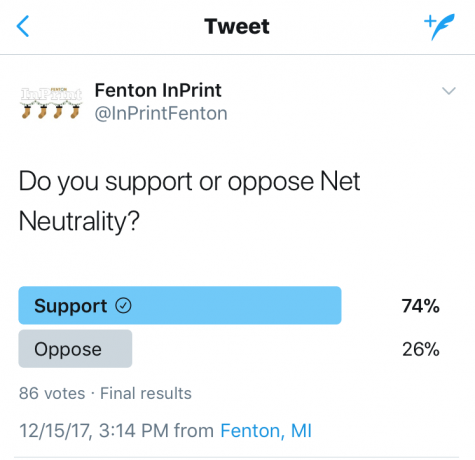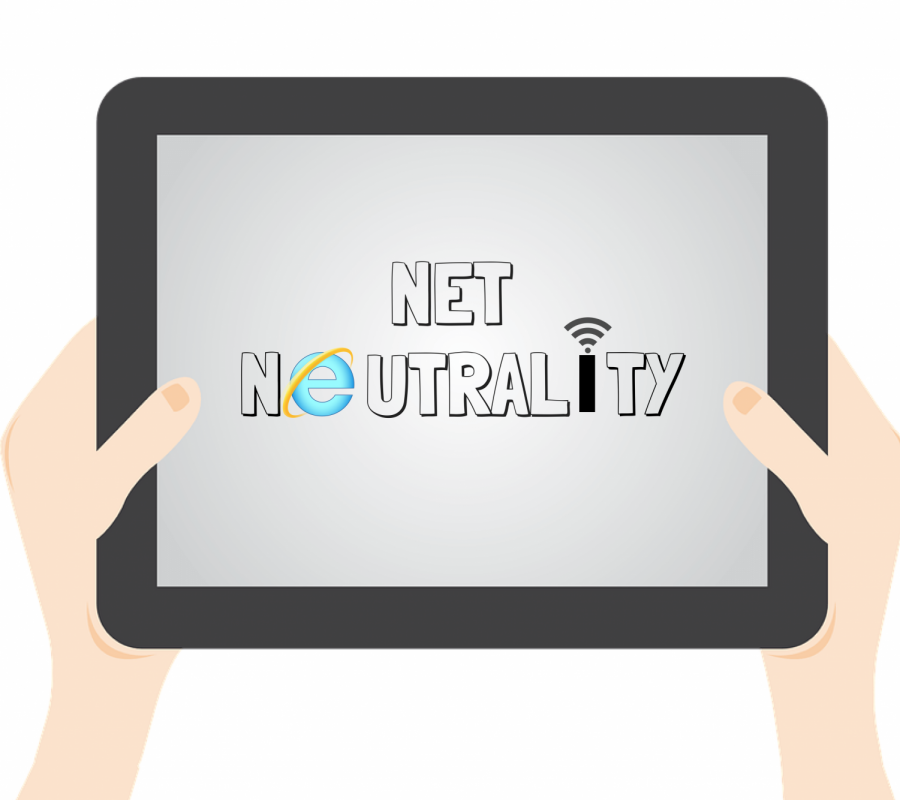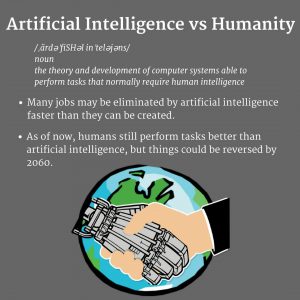The FCC votes to repeal Net Neutrality
January 12, 2018
Since its debut in 1990, the World Wide Web has been a form of unobstructed communication, a news source, a place for research and countless other activities. Due to a policy called Net Neutrality, provider companies were legally unable to restrict what their customers could see online. After paying the bill, the Internet is free-rein. However, on Dec. 14, three of the five members of the Federal Communications Commission (FCC) voted to eliminate Net Neutrality. 
“Net Neutrality is basically freedom of the internet,” sophomore Aiden O’Brien said. “So, people who use the internet have freedom to do whatever they want to. There are so many people who will vote against removing Net Neutrality. The FCC is in the wrong for bringing this up. What’s the point? People will always pirate it, anyway.”
Without Net Neutrality, service providers will have the ability to restrict what their consumers can and can not see, much like school Wifi can block social media and other sites deemed inappropriate. For example, if one of Verizon’s customers wanted to see an article talking about the benefits of Sprint, Verizon could block that article. In addition, companies could charge extra for certain websites on top of a monthly internet fee. A ‘Social Media’ package could cost $15.99 a month and it would include Twitter, Snapchat and Instagram. But it does not include Facebook, that may be an extra $3.99. Keep in mind that these costs are added onto an average monthly internet cost of $165, according to NBC News.
“I compare it to communist countries because their government blocks websites,” English Teacher Vera Hazlett said. “For instance, they can not view YouTube in certain countries, their government prohibits it. We don’t have anything like that in our country that prevents us from viewing what we want to on the internet. I see that as a part of freedom because it’s just like anything else, you can think and say all sorts of things as long as you don’t break the law. It makes me feel uncomfortable in that limits will be put on. By repealing it, they opened it up to restrictions.To not be able to communicate with the world after we’ve been given the world… it’s scary.”
The loss of Net Neutrality has the potential to affect the entire population. The political world that we’ve come to know could entirely vanish because unbiased research would be near impossible. Those who use social media as a career could lose their jobs, or take major salary cuts. Students may not be able to do homework because certain resources aren’t available.
“One thing I try to teach my students is how to evaluate for themselves,” Hazlett said, “and look for information themselves, and without [Net Neutrality] it’s almost like that could be taken away, but I think it would take a long time to reach the schools. Plus, we already have filters at school.”
These potential issues for students caused them, along with thousands of other Americans, to sign petitions, call the FCC and congressman, among other things. A poll by the University of Maryland’s Program for Public Consultation showed that 83 percent of voters oppose the FCC’s plan to repeal Net Neutrality. A Fenton InPrint twitter poll showed that 74 percent of students support Net Neutrality. Despite these statistics, the FCC voted to repeal it.
“Seeing as I’m on social media a lot, it will have a big impact on me,” O’brien said. “If we’re going to have to pay subscription fees for it, social media might not be a thing in these next couple years. I voted in a poll to prevent it. People can call congress or text them telling them why they shouldn’t sign. Congress is voting right now, so with enough votes, we can keep it.”
Although the FCC voted to eliminate Net Neutrality, the motion has not passed through congress. Certain states are instilling policies to protect consumers in that state, such as Nebraska, New York and Washington. If congress overrides the FCC’s choice to kill Net Neutrality, the Internet as we know it would be safe. However, if it doesn’t, the U.S.A. could be facing an entirely new generation of the World Wide Web.












